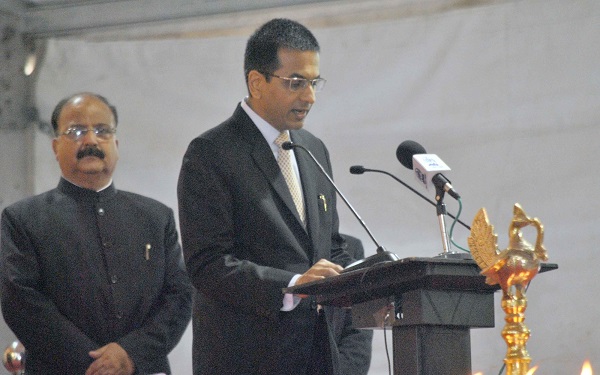Gandhinagar, Supreme Court judge Justice D.Y. Chandrachud on Saturday decried “blanket labelling of dissent” as “anti-national”, saying an essential aspect of democracy is freedom of expression.
Justice Chandrachud was addressing the Gujarat National Law University on the topic ‘The hues that make India: From plurality to Pluralism’, a topic that is a part of the 15th Justice P.D. Desai memorial lecture series.
His views come at a time when the passage of the Citizenship Amendment Act (CAA) and the proposed National Register of Citizens (NRC) have ignited a bitter nationwide debate, especially involving the minority section of the society.
“An essential aspect of democracy is freedom of expression, the commitment to deliberation that incorporates the diverse views of all its stakeholders, including of those who do not support the law. The fine balance between the majoritarian and liberal democratic governance is marked by constitutional principles wedded to the rule of law, the guarantee of individual freedom and ensuring freedom from discrimination,” Chandrachud said.
“A democracy wedded to the ideas of reason and deliberations ensures that minority opinions are not strangulated and ensures that every outcome is not the result of merely numbers but of a shared consensus,” added Chandrachud.
Chandrachud said that “blanket labelling” of dissent as anti-national or anti-democratic strikes at the “heart” of the country’s commitment to protect constitutional values and promote deliberative democracy.
“The blanket labelling of dissent as anti-national or anti-democratic strikes at the heart of our commitment to protect constitutional values and the promotion of deliberative democracy,” he said.
Protecting dissent is “but a reminder that while a democratically elected government offers us a legitimate tool for development and social coordination, they can never claim a monopoly over the values and identities that define our plural society”, Justice Chandrachud said.
Political outcomes, he said, must be justified not by reference to self-interest but to reason and the ability to convince one another as to why a proposed course of action is beneficial,” Chandrachud said.









